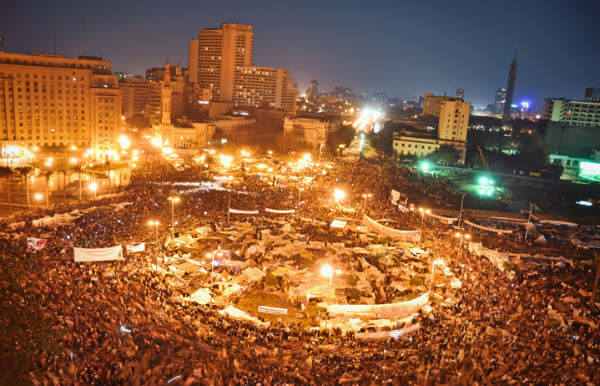
BuzzFeed reports: When he got the last call to come meet with the FBI agents, A.M. allowed himself an uncharacteristic bit of optimism. An immigrant from Pakistan, he had spent the last seven years trying to get a green card, a process that had so far included a series of interviews, three encounters with the FBI, and unexplained bureaucratic delays. Maybe this meeting would bring some resolution?
But when the 37-year-old software programmer arrived at the Homeland Security offices in Dallas that day in August 2014, the conversation quickly swerved. One of the two agents placed a piece of paper on the table and told him to write down the names of all the people he knew who he thought were terrorists.Bewildered, he said he didn’t know any terrorists. He said he didn’t know about any suspicious activity at all. “We think you do,” the agents replied.
A.M. was quickly becoming alarmed. (Like almost all other immigrants interviewed for this story, he said he did not feel safe allowing his name to be published. A.M. are his initials.) He was a family man, with a highly skilled 9-to-5 job. He had lived in America for nearly two decades. He went to college in America. Why would the FBI see him as a link to terrorism? And weren’t they supposed to be discussing his green card application?
As it turned out, that’s precisely what they were discussing. “We know about your immigration problems,” he recalls one of the agents telling him. “And we can help you with that.” If, they said, he agreed to start making secret reports on his community, his friends, even his family.Pressuring people to become informants by dangling the promise of citizenship — or, if they do not comply, deportation — is expressly against the rules that govern FBI agents’ activities.
Attorney General Alberto Gonzales forbade the practice nine years ago: “No promises or commitments can be made, except by the United States Department of Homeland Security, regarding the alien status of any person or the right of any person to enter or remain in the United States,” according to the Attorney General’s Guidelines Regarding the Use of FBI Confidential Human Sources.
In fact, Gonzales’s guidelines, which are still in force today, require agents to go further: They must explicitly warn potential informants that the FBI cannot help with their immigration status in any way.
But a BuzzFeed News investigation — based on government and court documents, official complaints, and interviews with immigrants, immigration and civil rights lawyers, and former special agents — shows that the FBI violates these rules. Mandated to enforce the law, the bureau has assumed a powerful but unacknowledged role in a very different realm: decisions about the legal status of immigrants — in particular, Muslim immigrants. First the immigration agency ties up their green card applications for years, even a decade, without explanation, then FBI agents approach the applicants with a loaded offer: Want to get your papers? Start reporting to us about people you know. [Continue reading…]




